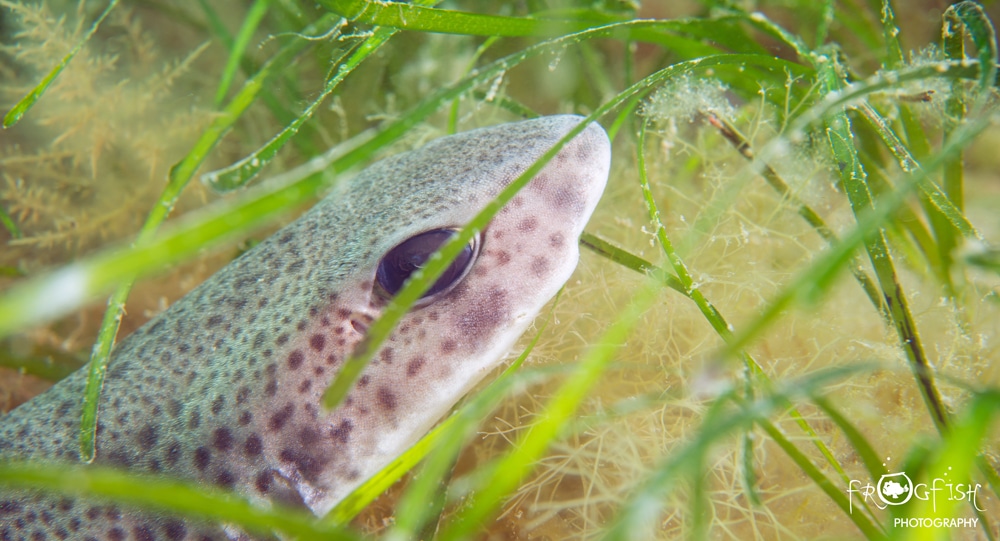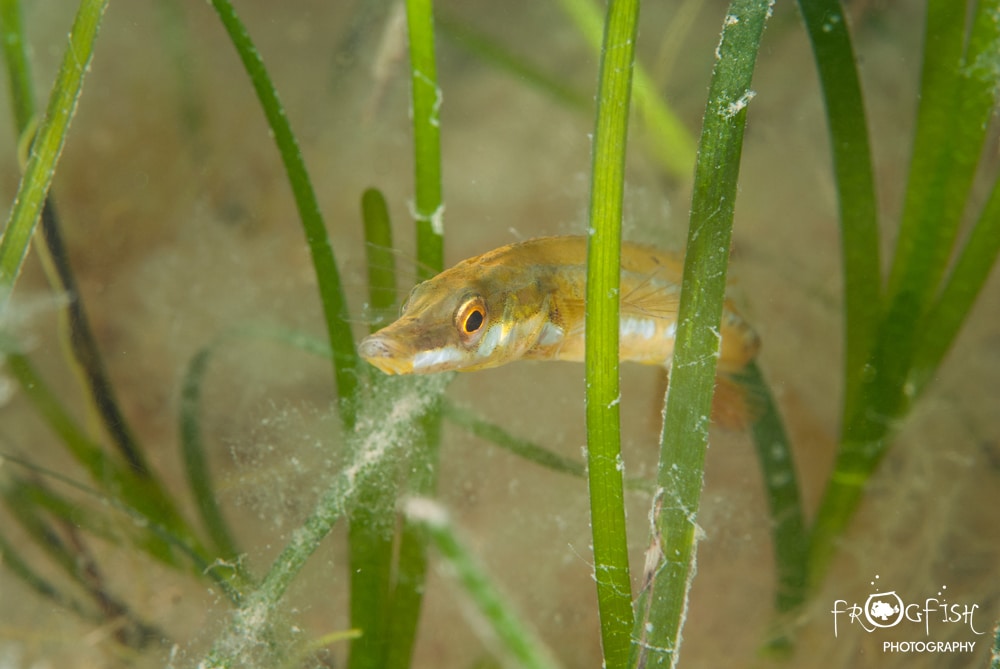Marine Life & Conservation
41 New Marine Conservation Zones welcomed by MCS

 The UK’s leading marine charity, the Marine Conservation Society (MCS), says it welcomes the Government’s announcement of the creation of 41 new Marine Conservation Zones (MCZs), but warns that proper investment in their management and monitoring must be made if they are to benefit both people and wildlife.
The UK’s leading marine charity, the Marine Conservation Society (MCS), says it welcomes the Government’s announcement of the creation of 41 new Marine Conservation Zones (MCZs), but warns that proper investment in their management and monitoring must be made if they are to benefit both people and wildlife.
21,000 people took part in last summer’s MCS campaign urging Environment Secretary, Michael Gove, to be ambitious and designate 41 sites offered for public consultation at the time.
The new MCZs include inshore and offshore areas around the coast, and will protect a range of marine wildlife including worms, starfish, sea firs, sea urchins, spiny lobster, molluscs, fan mussels, tentacled lagoon worm, short-snouted seahorse and native oyster. A wide variety of habitats will also be protected including sand, tidal mud, rocky reefs and gravel.
“This is great news for marine wildlife and we are delighted that government has approved the protection of these special marine areas,” said Dr Jean-Luc Solandt, MCS Principal Specialist, MPAs. “The UK has a growing network of more than 300 marine protected areas, but the government must now invest in proper management of these sites and keep them free of all activities that damage the seabed so that our spectacular marine wildlife can recover from decades of destruction and degradation.”
The new sites include Beachy Head East, a large inshore site that encompasses the seas next to Eastbourne, Bexhill and Hastings in Sussex, and is home to an incredible diversity of fish, including seahorses. A locally-run campaign ‘Backing Beachy Head East’ was supported by the MCS Agents of Change project, and attracted the support of fishermen, anglers, local businesses and all three local MPs.
Other sites given protection include Orford Inshore off Suffolk, Markham’s Triangle off the North East coast, Ribble Estuary off the Lancashire coast, Kentish Knock East, Bembridge off the east coast of the Isle of Wight, Purbeck coast off Dorset, Devon‘s Dart Estuary and Helford Estuary by the Lizard in Cornwall. Two other sites off the Northern Ireland coast are also included – South Rigg and Queenie Corner.
“These new offshore sites present exciting opportunities to include Highly Protected Marine Areas, where all activities like dredging, and bottom-towed trawling are kept out and species of commercially important fish, and the habitats they depend on, can properly recover and flourish,” said Dr Solandt. “Highly Protected Marine Areas are an important element of a protection network as they allow the rewilding of our seabed. These sites are also good for carbon sequestration through the recovery of shellfish beds and other habitats, helping us mitigate against the threat of climate catastrophe.”
Evidence about the importance of the many of these new MCZs was gathered by divers from Seasearch, the volunteer dive programme coordinated by MCS, and was presented to Defra to inform their decisions. Dr Charlotte Bolton, National Seasearch coordinator said: “Our divers have spent hours and hours diving England’s incredibly diverse seabed habitats to record the marine plants and animals that inhabit our inshore seas. Through this meticulous citizen science we have been able to make the case for the protection of many of these new sites, and we look forward to helping local authorities develop robust management and monitoring plans for these MCZs so that the amazing marine life they protect really can recover.”

Sue Ranger, MCS Conservation Engagement and Education Manager, who has studied the connection between the sea and wellbeing says the wildlife and habitats in these MCZ’s connect us to the ocean by playing an unseen role in our lives: “If we look after it properly now, seagrass will go on stabilising the seabed and storing carbon; oyster beds will go on filtering the water and improving its quality and estuaries will continue to provide nursery grounds for fish.”
MCS says that the designation of the 41 is only half the battle. The charity says it will now be working to achieve proper management of all marine protected areas and will be engaging with Defra to ensure that conservation policies and regulations are fit for purpose. It will also continue to collect seabed data and work with local communities through Seasearch and the Agents of Change project.
For more information about the Marine Conservation Society visit their website by clicking here.
Blogs
The Ocean Cleanup Breaks 10,000,000 KG Barrier

The Ocean Cleanup, the global non-profit project, has removed a verified all-time total of ten million kilograms (22 million lbs.) of trash from oceans and rivers around the world – approximately the same weight as the Eiffel Tower.
To complete its mission of ridding the oceans of plastic, The Ocean Cleanup uses a dual strategy: cleaning up the Great Pacific Garbage Patch (GPGP) to remove the plastic already afloat in the oceans, while stopping the flow of plastic from the world’s most polluting rivers.
Through cleaning operations in the GPGP and in rivers in eight countries, the cumulative total of trash removed has now surpassed ten million kilograms. This milestone demonstrates the acceleration of The Ocean Cleanup’s impact, while underlining the astonishing scale of the plastic pollution problem and the need for continued support and action.
While encouraging for the mission, this milestone is only a staging point: millions more tons of plastic still pollute our oceans and The Ocean Cleanup intends to continue learning, improving and innovating to solve this global catastrophe.
This announcement comes as governments from around the world meet to continue negotiations to develop a new legally binding instrument to end plastic pollution at INC4 in Ottawa, Canada. Representatives of The Ocean Cleanup will be in attendance and the organization will be urging decision-makers to collaborate towards a comprehensive and ambitious global treaty which addresses plastic at all stages of its life cycle and in all marine environments worldwide, including in areas beyond national jurisdiction.
It is encouraging to see that the need for remediation is reflected in the various options for potential treaty provisions. It is essential that the final treaty contains clear targets for the remediation of legacy plastic pollution, and reduction of riverine plastic emissions.
Tackling plastic pollution requires innovative and impactful solutions. The treaty should therefore incentivize the innovation ecosystem by fostering innovations that make maximal use of data, technology and scientific knowledge – such as those designed and deployed by The Ocean Cleanup.
‘After many tough years of trial and error, it’s amazing to see our work is starting to pay off – and I am proud of the team who has brought us to this point.’ said Boyan Slat, Founder and CEO of The Ocean Cleanup. ‘While we still have a long way to go, our recent successes fill us with renewed confidence that the oceans can be cleaned.’
The Ocean Cleanup was founded in 2013 and captured its first plastic in 2019, with the first confirmed catch in the GPGP coming soon after the deployment of Interceptor 001 in Jakarta, Indonesia. After surpassing one million kilograms of trash removed in early 2022, the non-profit project has since progressed to the third iteration of its GPGP cleaning solution, known as System 03, and a network of Interceptors currently covering rivers in eight countries, with more deployments set for 2024.
About The Ocean Cleanup
The Ocean Cleanup is an international non-profit organization that develops and scales technologies to rid the world’s oceans of plastic. They aim to achieve this goal through a dual strategy: stemming the inflow via rivers and cleaning up the legacy plastic that has already accumulated in the ocean. For the latter, The Ocean Cleanup develops large-scale systems to efficiently concentrate the plastic for periodic removal. This plastic is tracked and traced through DNV’s chain of custody model to certify claims of origin when recycling it into new products. To curb the tide via rivers, The Ocean Cleanup has developed Interceptor™ solutions to halt and extract riverine plastic before it reaches the ocean. Founded in 2013 by Boyan Slat, The Ocean Cleanup now employs a broadly multi-disciplined team of approximately 140. The foundation is headquartered in Rotterdam, the Netherlands.
For more information, visit: theoceancleanup.com and follow @theoceancleanup on social media.
Marine Life & Conservation
Steve Backshall to headline Shark Trust’s flagship event: For the Love of Sharks

Join a host of amazing, shark loving, speakers including Steve Backshall and the Shark Trust team for an evening celebrating shark conservation at the Royal Geographical Society in London this November.
Date: 29th November 2024
Time: 6-10pm
Location: Royal Geographical Society, London
Tickets: https://www.sharktrust.org/Event/flos24
The event will be a celebration of all things shark. Those lucky enough to get hold of tickets will hear from engaging guest speakers with a passion for sharks.
The line-up includes (*subject to change if unforeseen circumstances arise)
Steve Backshall: One of television’s busiest presenters, BAFTA award-winning wildlife expert Steve has been passionate about the wild world ever since he was young.
Steve’s impressive TV career has taken him all around the world, investigating a wide array of species and environments. Steve has filmed over 100 hours of children’s wildlife programmes with the BAFTA award winning Deadly 60 franchise and recently, with Sky Nature, for his new series ‘Whale with Steve Backshall’. He has been a patron for the Shark Trust for 10 years.
Simon Rogerson: is a photojournalist specialising in natural history, diving and the sea.
He is editor of SCUBA magazine, the official journal of the British Sub-Aqua Club. Simon started his career as a crime reporter but gravitated towards his ‘less depressing’ interest in underwater exploration, joining the staff of DIVE magazine in 1999. In 2005 he was named ‘Editor of the Year’ in the PPA’s Independent Publishing Awards. Simon also works as a freelance writer, contributing frequently to the Sunday Times and Telegraph, in addition to BBC Wildlife, Esquire, and a host of international diving magazines. He is the author of a book, Dive Red Sea, published by Ultimate Sports. Now based in Berkshire, Simon has been a Patron of the Shark Trust for 20 years.
More speakers to be announced soon. Head to the Shark Trust website to learn more.
The evening will also allow guests the final chance to see the Oceanic 31, shark art exhibition. Some of the artwork will be auctioned/raffled at the event, while the rest will be auctioned online to raise money for the Shark Trust Oceanic Programme.
For the Love of Sharks is an evening with something for everyone who is interested and fascinated by sharks. Join the Shark Trust, their Patrons, Trustees and Staff, along with a host of supporters for this celebration of shark conservation.
For more information or to buy a ticket: https://www.sharktrust.org/Event/flos24
-

 News3 months ago
News3 months agoCapturing Critters in Lembeh Underwater Photography Workshop 2024: Event Roundup
-

 Marine Life & Conservation Blogs3 months ago
Marine Life & Conservation Blogs3 months agoCreature Feature: Swell Sharks
-

 Blogs2 months ago
Blogs2 months agoMurex Resorts: Passport to Paradise!
-

 Blogs2 months ago
Blogs2 months agoDiver Discovering Whale Skeletons Beneath Ice Judged World’s Best Underwater Photograph
-

 Gear Reviews3 weeks ago
Gear Reviews3 weeks agoGEAR REVIEW – Revolutionising Diving Comfort: The Sharkskin T2 Chillproof Suit
-

 Gear Reviews3 months ago
Gear Reviews3 months agoGear Review: Oceanic+ Dive Housing for iPhone
-

 Marine Life & Conservation2 months ago
Marine Life & Conservation2 months agoSave the Manatee Club launches brand new webcams at Silver Springs State Park, Florida
-

 News2 months ago
News2 months agoPADI Teams Up with Wellness Brand Neuro to Drive Ocean Change and Create a Blue State of Mind





